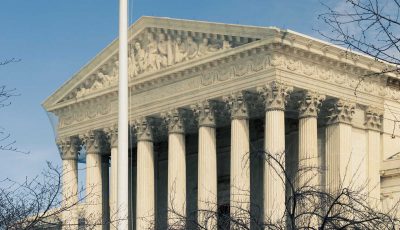SCOTUS puts equality for citizens in the US territories on its docket
WASHINGTON, D.C.—The U.S. Supreme Court announced yesterday it will be reviewing a ruling from the U.S. Court of Appeals for the First Circuit that unanimously found it unconstitutional to deny low-income elderly, blind and disabled residents of Puerto Rico the same access to federal support enjoyed by other Americans living in the states and certain other territories.
In United States v. Vaello-Madero, decided by the First Circuit last year, the United States is seeking to recover $28,081in Supplemental Security Income payments that Jose Luis Vaello-Madero received after moving from New York to Puerto Rico. Altogether, federal discrimination against residents of U.S. territories each year denies billions of dollars in critical support to the most vulnerable U.S. citizens in these areas.
The United States is also seeking reversal in two other cases where federal judges have ruled in favor of equality for U.S. citizens living in the territories. In Schaller v. U.S. Social Security Administration, currently pending before the U.S. Court of Appeals for the Ninth Circuit, a federal district court judge in Guam reached a similar ruling that the denial of SSI benefits to a disabled woman in Guam was unconstitutional. And in Peña Martínez v. U.S. Department of Health & Human Service, currently pending before the First Circuit, a federal district court judge in Puerto Rico ruled unconstitutional not just the denial of SSI benefits, but also the exclusion or Puerto Rico residents from the Supplemental Nutrition Assistance Program and Medicare Part D low-income subsidies.
“Equality for U.S. citizens in Puerto Rico and other territories is on the line as the U.S. Supreme Court reviews the First Circuit’s landmark decision ruling that the arbitrary denial of SSI benefits to residents of the territories is unconstitutional,” said Neil Weare, president and founder of Equally American, a nonpartisan public interest organization that works to advance equality and voting rights in U.S. territories. “SSI is a vital lifeline for millions of low-income disabled and elderly Americans, and there is no basis for arbitrarily excluding citizens living in the territories from this safety net.”
Last September, Presidential candidate Joe Biden tweeted in response to DOJ’s decision to seek Supreme Court review to reverse Vaello-Madero that, “This ends when I’m elected President.” In fact, the Biden-Harris campaign made equality for Puerto Rico a central part of his campaign.
“With the Supreme Court granting review in Vaello-Madero, President Joe Biden and the U.S. Department of Justice are put in an awkward position. Absent the kind of shift DOJ has made in other recent cases, this Administration will in effect be arguing in favor of continued discrimination against the most vulnerable residents of Puerto Rico and other territories,” Weare said. “This is the kind of case where DOJ should consider reversing its position. After all, it is hard to see how asking the Supreme Court to help collect money from a disabled Puerto Rican man who does not have it is consistent with a pledge to treat citizens in the territories with ‘dignity and respect.’” (PR)
























